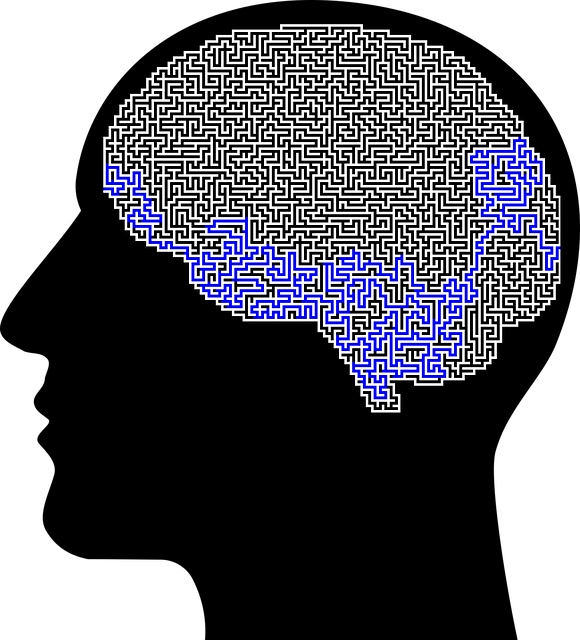Arvada Veterans Therapy offers comprehensive services for mood regulation, combining evidence-based practices like CBT, mindfulness, and lifestyle coaching with a focus on cultural sensitivity. Their holistic approach includes Risk Management Planning, social skills training, and community outreach to empower veterans in managing emotional challenges and promoting overall mental well-being through support groups and healthy lifestyle choices.
Mood regulation strategies are essential tools for managing emotional well-being, especially for individuals like Arvada veterans who may face unique challenges. This article explores various techniques to help you understand and manage your moods effectively. From cognitive behavioral therapy (CBT), a powerful tool for veterans, to mindfulness practices and lifestyle changes, discover how these approaches can enhance your emotional resilience. Additionally, we’ll discuss the vital role of support groups and social connections in mood management.
- Understanding Mood Regulation and Its Significance
- Cognitive Behavioral Therapy (CBT): A Powerful Tool for Arvada Veterans
- Mindfulness Practices: Calming the Mind and Body
- Lifestyle Changes for Enhanced Emotional Well-being
- The Role of Support Groups and Social Connections in Mood Management
Understanding Mood Regulation and Its Significance

Understanding Mood regulation is paramount in maintaining mental well-being and overall quality of life. It involves managing and stabilizing emotions, ensuring they align with the context and demands of daily living. Effective mood regulation strategies empower individuals to navigate life’s challenges more adaptively, enhancing resilience and reducing the risk of adverse outcomes.
For many, seeking professional support from Arvada Veterans Therapy plays a pivotal role in mastering these skills. They offer specialized services tailored to address unique emotional needs, including Risk Management Planning for Mental Health Professionals. By integrating coping skills development and community outreach program implementation, individuals gain tools to proactively manage their moods, fostering a sense of control and empowerment.
Cognitive Behavioral Therapy (CBT): A Powerful Tool for Arvada Veterans

Cognitive Behavioral Therapy (CBT) has emerged as a powerful tool for Arvada Veterans dealing with mood disorders and emotional challenges. This evidence-based approach focuses on identifying and changing negative thought patterns, behaviors, and emotions that contribute to distress. By targeting specific issues relevant to veterans’ experiences, such as trauma, stress, and adjustment difficulties, CBT offers a structured framework to enhance coping strategies and promote resilience.
The integration of cultural sensitivity in mental healthcare practice is a key aspect of CBT for Arvada Veterans. Understanding the unique cultural backgrounds and experiences of veterans ensures that therapy aligns with their personal values and beliefs, fostering trust and engagement. Additionally, CBT emphasizes building resilience, enabling individuals to navigate life’s challenges more adaptively. This proactive approach not only aids in burnout prevention but also empowers veterans with long-lasting coping mechanisms to maintain mental well-being.
Mindfulness Practices: Calming the Mind and Body

Mindfulness practices have emerged as a powerful tool in mood regulation, offering individuals a way to calm their minds and bodies in the face of stress or anxiety. This ancient technique involves focusing one’s awareness on the present moment, observing thoughts and sensations without judgment. By cultivating mindfulness, individuals can develop a greater sense of self-awareness, enabling them to recognize and manage emotional responses more effectively.
At Arvada Veterans Therapy, we emphasize the importance of integrating mindfulness into daily routines as part of our holistic approach to mental health. Our therapists guide clients through various mindfulness exercises tailored to their unique needs, whether it’s through guided meditation, body scans, or mindful breathing techniques. Incorporating these practices can significantly contribute to an individual’s overall well-being, fostering resilience and promoting a sense of tranquility in a world often characterized by chaos and uncertainty. Additionally, the effectiveness of mindfulness is supported by ongoing research, especially in the realm of Mental Health Policy Analysis and Advocacy, where evidence-based strategies like these are recognized as valuable components of comprehensive mental wellness coaching programs development and Community Outreach Program Implementation initiatives.
Lifestyle Changes for Enhanced Emotional Well-being

In pursuit of optimal emotional well-being, lifestyle changes play a pivotal role. Incorporating regular physical activity, a balanced diet rich in nutrients, and adequate sleep into daily routines can significantly enhance mood regulation. These foundational self-care practices not only bolster mental resilience but also serve as a solid base for complementary therapeutic approaches like those offered at Arvada Veterans Therapy. By fostering healthy habits, individuals can better navigate life’s challenges and promote overall mental wellness.
Furthermore, social skills training and mental wellness coaching programs have proven effective in empowering individuals to manage their emotions effectively. Developing robust social connections through meaningful interactions and cultivating coping strategies tailored to individual needs contribute to a more stable emotional landscape. These holistic approaches, combined with professional guidance, can lead to profound transformations, enabling folks to thrive in all aspects of life.
The Role of Support Groups and Social Connections in Mood Management

Support groups and social connections play a pivotal role in mood management, offering a powerful tool for individuals navigating mental health challenges. These networks provide a safe space where people can share their experiences, emotions, and coping strategies, fostering a sense of belonging and understanding. At Arvada Veterans Therapy, for instance, support groups facilitate peer-to-peer communication strategies, allowing veterans to connect with others who have faced similar struggles, thereby boosting resilience and promoting positive mood regulation.
The impact of these connections extends beyond emotional support. They encourage the adoption of healthy coping mechanisms and provide a platform for learning effective communication strategies. By actively engaging in such groups, individuals can build resilience, enhance their problem-solving skills, and develop a broader perspective on managing their moods. This collective approach to mood management not only empowers individuals but also contributes to a stronger sense of community, which is essential for overall well-being.
Mood regulation is a vital aspect of emotional well-being, especially for individuals dealing with mental health challenges. As shown by research on Arvada veterans therapy, various strategies can significantly enhance one’s ability to manage moods. Cognitive Behavioral Therapy offers effective tools to identify and change negative thought patterns, while mindfulness practices promote calmness and resilience. Making positive lifestyle changes, such as regular exercise and a balanced diet, further complements these strategies. Support groups and strong social connections play a crucial role in providing emotional support and fostering a sense of belonging, ultimately contributing to improved mood regulation.












